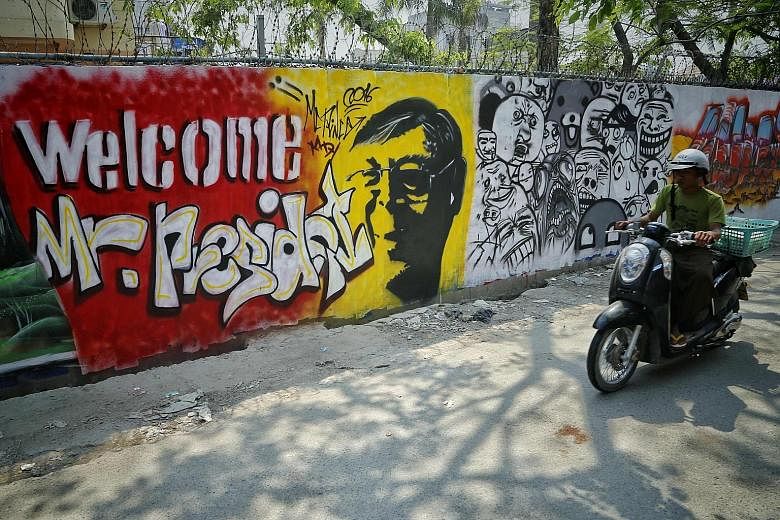YANGON • Myanmar's incoming government announced plans yesterday to create a ministry for ethnic affairs, marking the importance it places on relations with minorities in a country scarred by festering civil wars and sectarian tensions.
The move was contained within a wider civil service reform plan announced in Parliament that aims to streamline the unwieldy junta-era bureaucracy, slashing the total number of ministries from 36 to 21.
A new civilian leadership, led by Ms Aung San Suu Kyi and her presidential proxy Htin Kyaw, will take office at the end of the month.
The ministry plans will be debated by lawmakers today, Parliament Speaker Mann Win Khaing Than said. They will be implemented after Mr Htin Kyaw is sworn in on March 30.
Ms Suu Kyi's National League for Democracy (NLD) has vowed to run a more inclusive administration open to Myanmar's ethnic minorities, many of whom chafed under military rule and launched frequent armed struggles seeking greater autonomy.
Last week an ethnic Chin Christian, backed by the NLD, was elected one of two vice-presidents, while the party has pledged to form a Cabinet from across the political spectrum.
Myanmar is still burdened by the legacy of half a century of junta domination that plunged the nation into poverty and isolation.
The new government faces an obstacle course of challenges as it takes the reins of power, including ethnic conflicts, poverty and the residual power of the army.
It also inherits a notoriously inefficient and creaking bureaucracy that was neglected, underfunded and riddled with corruption during military rule.
Under the current system, for example, there are separate ministries for electric power and energy, while rail transport is run separately from the transportation ministry.
Three key ministries - those of home affairs, border affairs and defence - will still be run by the army, despite the country's leap towards democracy in recent years.
While rank-and-file civil servants are not expected to lose their jobs, the ministries themselves will be trimmed down in the new plan, which has one minister each for energy, transport, agriculture and the president's office.
The Ministry of Information, which churned out propaganda and diatribes against the democracy movement under junta rule, will also remain.
The plan also combines the powerful Ministry of Mines into a broader natural resources and environment portfolio. This will remain a crucial position in the nation, whose rich natural resources are largely concentrated in ethnic minority areas where local people see little sign of the billions of dollars in revenues they produce.
Meanwhile, Singapore's President Tony Tan Keng Yam and Prime Minister Lee Hsien Loong have written congratulatory letters to Myanmar's President-elect Htin Kyaw, the Ministry of Foreign Affairs said yesterday.
AGENCE FRANCE-PRESSE

